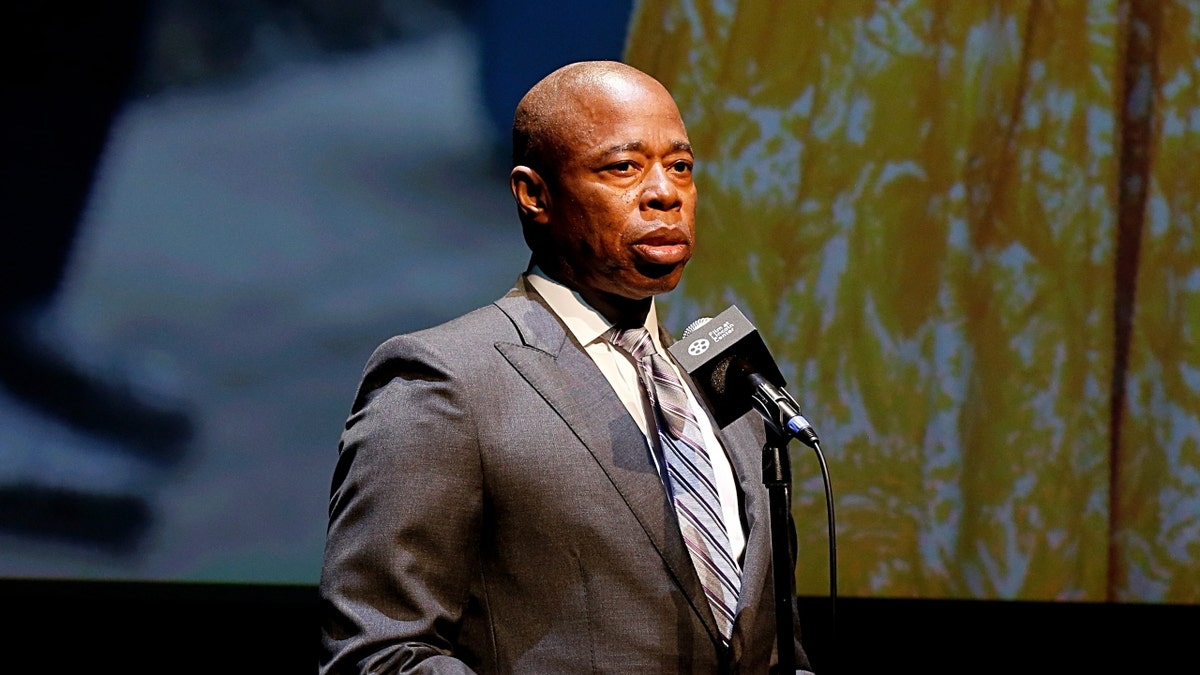NYC resorts to involuntary hospitalizations of mentally ill homeless people to alleviate crime
New York City public advocate Jumaane Williams weighs in on New York City’s growing crime problem and the current efforts that the city is implementing to attempt to lessen the crisis.
New York City Mayor Eric Adams is responding to inquiries regarding a controversial new directive to treat people on the city's streets and subways suffering from untreated severe mental illness by involuntarily hospitalizing some who refuse care.
Speaking to reporters on Monday, the mayor said he had been elected to look at systemic problems like mental health in the Big Apple.
"I didn't get elected to do [an] easy task. I got elected to look at these systemic problems that have been in this city for generations," he said.
The initiative gives outreach workers, city hospitals and first responders – including police – discretion to involuntarily hospitalize anyone they deem a danger to themselves or unable to care for themselves.

Homeless Outreach personnel reach out to a person sleeping on a bench in the Manhattan subway system, Monday, Feb. 21, 2022, in New York. (AP Photo/John Minchillo, File)
"The very nature of their illnesses keeps them from realizing they need intervention and support. Without that intervention, they remain lost and isolated from society, tormented by delusions and disordered thinking. They cycle in and out of hospitals and jails," Adams said last week.
In a Nov. 29 release, the mayor said the plan seeks to dispel a "myth" that the legal standard for involuntary intervention requires an "overt act" like violence or dangerous behavior likely to result in imminent harm. The city is also developing a phone line that would allow police officers to consult with clinicians.
Previously – after a woman was shoved into the path of an approaching train – Adams announced a subway safety plan and vowed to expand outreach teams.

Mayor Eric Adams at Lincoln Center on Oct. 3, 2022, in New York City. (Photo by Dominik Bindl/Getty Images)
He has also called for the expansion of the use of "Kendra's Law," which allows courts to order defendants with mental illness to complete treatment.
FOX 5 New York reported that despite promising there would be a psychiatric bed for every person in need, the numbers do not match the pledge and that Adams said that there is no plan right now to report the number of people being taken to a hospital for evaluation.
NYC SUBWAY ATTACK: WOMAN IN CRITICAL CONDITION AFTER FACE IS BURNED BY 'UNKNOWN CHEMICAL SUBSTANCE'
"Within the limitation of… within HIPAA laws or other laws that we're not required to report, we're going to try to be as transparent as possible," the mayor added.
The station said, citing a city hall spokesperson, that at least one person had been transported to the hospital last week and that advocates are pushing back on the claim that reporting the number of people being taken for care would violate any HIPAA laws.

New York Police Department officers wake up sleeping passengers and direct them to the exits at the 207th Street station on the A train, Thursday, April 30, 2020, in the Manhattan borough of New York. (AP Photo/John Minchillo, File)
According to FOX 5, Adams said that if an individual was taken to a hospital who did not technically fall under the category of severe mental illness, they would be connected to a shelter or other accommodations.
CLICK HERE TO GET THE FOX NEWS APP
While the New York Civil Liberties Union and the Coalition for the Homeless have criticized the plan – calling forcing people into treatment a "failed strategy" – other groups like the Legal Aid Society said the mayor was correct in noting "decades of dysfunction" in mental health care.
A spokesperson for New York Gov. Kathy Hochul said the directive plan builds on mutual efforts to increase capacity at psychiatric hospitals, as well as expand outreach teams in subways.
The mayor's office did not immediately respond to Fox News Digital's request for comment.
The Associated Press contributed to this report.






















